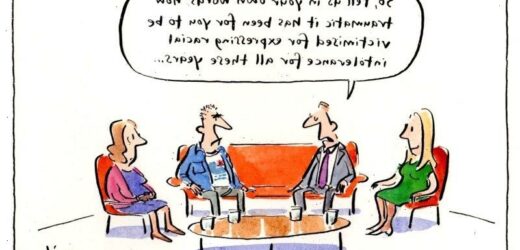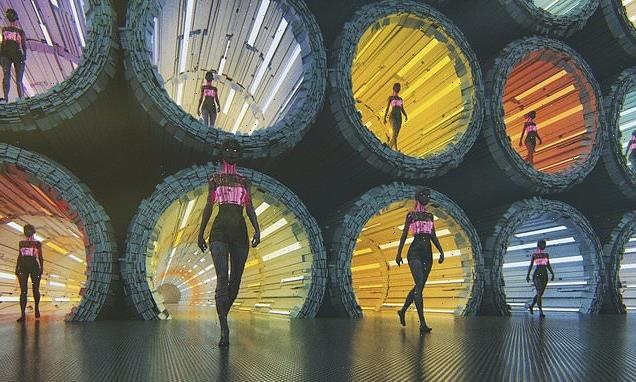Vintage Wilcox
Vintage WilcoxCredit:
To submit a letter to The Age, email [email protected]. Please include your home address and telephone number. No attachments, please include your letter in the body of the email.
The reactions from many in recent days to a young footballer admitting to using a drug as a “self-help” strategy are disappointing. He also admits that his drug-taking was a failed strategy, yet there are cries for punishment, humiliation, shaming and retaliation. Well, since when have any of these reactions proved to be a positive learning experience for the “offender” or the community? Connection to community resources would benefit everyone.
Robert Semmens, East Brunswick
Double standards
Bailey Smith – the most marketable player in the AFL – is embroiled in a “white powder” scandal; his lucrative sponsors vow to stand by him. Nadia Bartel – a social media influencer and ex-wife of an AFL star – is embroiled in a “white powder” scandal; she is commercially ostracised as her sponsors decry and desert her.
Sam Bentley, South Yarra
Worse under a harsh spotlight
Bailey Smith took a recreational non-performance enhancing drug in his own personal time, last year, outside the confines of the AFL season. While this was obviously a poor decision, it does not warrant the sort of penalties people are suggesting. Your correspondent (Letters, 13/6) infers that the use of illicit drugs would lead many to lose their jobs and to police intervention. The use of illicit drugs is so widespread in sport and society in general that the average Australian would neither attract the attention of their employer nor the police. AFL footballers are put in the harsh media spotlight like no other employee will ever be. They hardly escape without penalty. The AFL has a shameful history in its treatment of women, Indigenous people and its continued acceptance of sponsorship money from gambling companies. I find it laughable that a footballer can be accused of bringing the game into disrepute when the AFL has been doing that itself for decades.
Adam Laffey, Yarraville
Turning a blind eye
Relax footballers, it seems the AFL won’t punish you for sniffing the white powder. The old blind eye will be turned. However, their instructions are to keep it out of the paper so it doesn’t affect their reputation, or face sanctions. I guess health issues are not a consideration.
Geoff Lipton, Caulfield North
What if everyone was named?
Maybe if all the drug users from the top end of town and all the athletes on two strikes were exposed by the media, your correspondent (13/6) wouldn’t think so poorly of Bailey Smith.
Margaret Raffle, Keilor East
Support with role models
Luke Beveridge was quoted as saying that Bailey Smith “essentially almost needs a minder wherever he goes now” (“Beveridge wants drug policy gone”, The Age, 14/6) . Like most people he would probably benefit from a mentor, not a minder. Young men who are paid extraordinary amounts of money are at risk of making poor decisions. I thought that AFL clubs would, naturally, assign mentors to all new players and be especially alert to the risks of young people who suddenly have money that is well over what they need for daily living expenses.
Genevieve Leach, Carlton
Old ways
Jeff Kennett was well characterised early in his public life by Tandberg with his foot in his mouth. His call for a two-year ban of footballer Smith (12/6) for drug use is consistent with his old school conservative political beliefs whose advocates are shuffling off stage right. Punishment is scientifically proven to be an ineffective, costly and heartless way to change behaviour. Change is happening and Kennett’s triumphalism can be put out to pasture.
Derek James, Curlwaa
THE FORUM
Exciting yet unsatisfying
Both profound and patriotic congratulations must go to the Socceroos and their coach Graham Arnold for winning a berth in the Soccer World Cup finals. For those of us who set the alarm for 4am to watch, the 5-4 victory shoot-out over Peru was a certified nail-biter, stirring sweet memories of John Aolisi’s penalty kick in 2005.
However, while I do fully understand the need to eventually break the deadlock after almost two hours of playing and extra time, to the generic sports lover there is still something deeply unsatisfying about the penalty shoot-out. Could we imagine the dismay if an AFL final was decided by free kicks from the 50-metre line? In the event of a draw after extra time, a golden goal without the offside rule should come into effect for another 10 minutes each way. If the scores are still tied, my suggestion is to take off a player from each side every two minutes until a goal is scored.
Peter Waterhouse, Craigieburn
Exploitation behind Cup
While we celebrate Australia’s qualifying for the World Cup in Qatar, let’s remember that more than 6500 migrant workers have died in Qatar since it won the rights to host the event, many in conditions of extreme exploitation. FIFA has avoided questions about donating some of its massive profits to compensate grieving families, now bereft of their main breadwinner. Australia’s media and sporting bodies should take this unique opportunity to highlight the systemic human exploitation underpinning the 2022 World Cup and hold FIFA to account for their complicity.
To begin with, FIFA should pay compensation. FIFA must also be held to account for future decisions on World Cup hosting.
Anna Ridgway, Abbotsford
Private problems
The Victorian government’s announcement of a $3000 “reward” for its health staff to acknowledge their selfless contributions during COVID is to be commended. The assertion by your correspondent (Letters, 14/6) that this should be extended by government to private hospital staff does not make any sense. Private hospitals are operated mostly for profit and even the “not for profits” charge exorbitant fees. It is up to these organisations to match the government as they see fit. Perhaps the private sector’s reluctance says it all.
Last year I found myself in great pain while being treated for cancer. The local public hospital emergency department was overwhelmed and in desperation I presented to a private hospital. I was charged $250 at the door and admitted for observation – costing more than $1500. Today I received a “begging letter” from the private hospital suggesting I donate $43,000 to buy an elaborate piece of medical equipment. I would advise them their staff are the most important element of their businesses and if they are not rewarded appropriately acquiring “whiz bang” equipment will be the least of their worries.
Mark Bennett, Manifold Heights
Pay from their own pocket
Private hospital organisations such as Ramsay Health make significant profits and have done well during the pandemic. Ramsay Health, which criticised the state government bonus for public staff, pocketed $428.7 million from Australian and UK governments for costs associated with maintaining its facilities and workforce for use by the public sector during the pandemic. Craig McNally, the managing director and chief executive officer of Ramsay Health has a remuneration package that tripled from $1.9 to $5.7 million in the 2021 financial year – perhaps he and his business should contribute to a nurses and staff bonus.
David Eames-Mayer, Balwyn
Wards still struggling
It’s all very well for Daniel Andrews to berate the bosses of private hospitals to provide well for their nurses. What about him providing adequately for staff in his own public hospitals? Wards are inadequately staffed – my wife experienced one nurse being expected to care for eight very ill patients. During that stay one nurse broke down in tears as she could not do all that was demanded of her. During COVID only very ill patients were admitted but staff numbers were not increased. Family members who in the past did many chores that reduced the workload on nurses were not allowed in, but the administrations still expected nurses to care for too many patients. Nurses often chose to work in the private hospitals because conditions and pay were often better.
Handing out $3000 bonuses may be good but many will miss out. Other means of encouragement needs to occur. When nurses are being overworked the administrations must step in immediately to improve the situation.
Tim Blowfield, Melbourne
Ecosystems destroyed
The problem with your correspondent’s defence of Victoria’s forestry industry (“Stop demonising forestry industry”, Letters, 14/6) is that he fails to mention the widespread practice of replacing old forest timber with pine plantations that are unsuitable for native flora or fauna habitation.
Phil Bodel, Ocean Grove
Native best for carbon
Your correspondent rightly draws attention to the value of Australia’s forests in combating climate change. Australia’s mountain ash, the world’s tallest flowering tree, is also best at storing carbon. Given the threat now posed by logging and climate change to Victoria’s remaining small pockets, the International Union for Conservation of Nature lists the mountain ash ecosystem as critically endangered. It no longer makes sense to cut down these unique trees. The forest industry is not being demonised. Rather, the government is being challenged by an increasingly concerned public to justify why it is still clear felling and burning native forests.
Ray Peck, Hawthorn
Time for gas is gone
Your correspondent (“Gas still has a role”, Letters, 14/6) argues for gas as a transitional tool towards renewables, supporting the chief scientist’s arguments of 2021. I too argued for a decade of transitional use of gas in my book Back to Basics – the book though was published in 2009 and that decade, and the value of gas for transition, has long passed.
Dr Geoff Wescott, Deakin University
Ditch royals and president
Your correspondent asks “Is it possible to become a republic without a president?” (Letters, 14/6). This is a question I have asking for years, without any answers. Some discussion which explores this model, or any other that retains our parliamentary democracy, without the need for a president is well overdue. I fail to see any advantage in the proposition of a “head of state”, with all the accompanying controversy, unneeded extra formality and ongoing expense.
Rita Thorpe, Coburg
But why?
When King George VI died in 1952, I asked my school teacher who would be the new king. The reply was his daughter would become ruler. I asked why? The answer was because she was next line. I asked what makes her qualified. In the ensuing years, I still haven’t heard any rational answer to my question. As I approach my 80th birthday l’m still asking why?
Bill Pimm, Mentone
No need to change
Your correspondent suggests we’re past the “why stage” of moving towards a republic (Letters, 12/6). Really? Where is the gain, so great, that it would justify the upheaval and enormous expense? Please don’t give Canberra another reason to waste money. Keeping our constitutional monarchy, it works.
Lawrence Pope, North Carlton
Plain problem
So there is a push to rezone a golf course next to Heide in Bulleen for housing? (“Heide seeks $70m gallery expansion”, The Age, 14/6). This is a Yarra River flood plain. Have we learned nothing from the NSW floods?
Tim Davis, Heidelberg
Positive role models
Loren Bridge’s thought-provoking comments (“Girls’ schools produce the leaders of tomorrow”, 13/6) made me recall the “vocational guidance” I received from the (visiting male) counsellor at my girls’ school 65 years ago. He asked me what I wanted to do; his response to my answer was “Oh, that’s rather a difficult area for girls”. I’m sure he meant it kindly, but it was not much help or encouragement. At the time, I just wondered why we weren’t given the benefit of a woman’s advice.
The greatest advantage still offered by girls’ schools today is that they can provide positive female role models in all areas.
Jenifer Nicholls, Armadale
The whole story
Note to Roshena Campbell (“Ethnic voters leave Labor but not for Libs”, 13/6), if you wish your articles to be viewed as more than Liberal Party propaganda, be more factual. While it is true that Harold Holt made changes to the Migration Act making easier for non-whites to migrate to Australia, it was Gough Whitlam who dismantled the White Australia policy in 1972, which you conveniently overlooked.
Barry Buskens, Beaumaris
Assange not objective
In the context of protecting journalists “exposing corrupt or illegal practices”, your correspondent, (Letters, 14/6), praises Julian Assange “for his publishing of the abuses perpetrated by the US in pursuit of its foreign policies”. This stock characterisation of the Australian expatriate as an exemplar of free speech needs to be challenged. In 2012 a show Assange hosted was put out by the Putin government’s infamous disinformation TV channel, Russia Today. Two years before, he and WikiLeaks had reneged on promised disclosures about Kremlin corruption. Instead, unrelenting document “dumps” damaging to the United States became their focus. In 2019, the US Senate intelligence committee chairpersons were of the view that Assange and WikiLeaks had “acted as an arm of the Russian intelligence services for years”. A corrective to Assange as an objective journalist is long overdue.
Jon McMillan, Mount Eliza
And another thing
World Cup qualifier
Has our travelling PM got his ticket booked yet for the World Cup? He seems very keen not to be in Australia much, was it something we did?
Doris LeRoy, Altona
Illustration: Matt GoldingCredit:
Energy
What’s behind the opposition’s sudden fascination with nuclear power? Easy, it’s not coal or gas, nor is it solar or wind. But it’s not new, and it’s not clear.
Tim Durbridge, Brunswick
Putting nuclear energy on the table would result in a highly radiated table and would further reduce the half life of a very depleted opposition.
Greg Curtin, Blackburn South
I’m 100 per cent for nuclear power as soon as there is a 100 per cent guaranteed method to neutralise nuclear waste. There is no moral high ground in nuclear power.
Margaret Callinan, Hawthorn
With one quarter of the east coast’s coal-fired power stations out of action (“Blackout risks in NSW, Queensland”, 14/6), it’s time to convert to reliable solar and wind.
Malcolm Cameron, Camberwell
I took the advice of our state government to compare energy company rates to reduce my energy bills, but discovered I would first need to enrol in an advanced maths class.
Jessie Mackenzie, Brunswick
Politics
With the increasing number of sporting identities entering politics can we assume the skill set is the same?
Joan Segrave, Healesville
I like the idea of a republic but choosing a president is a real worry. I guess if someone “charms” us by spending millions advertising themselves that will be OK.
Bruce Dudon, Woodend
Finally
After 58 years can Victorians dare to dream of another Collingwood v Melbourne grand final?
Brian Sanaghan, West Preston
Opposing teams, you have been warned. Beware the glare of Max.
David Cayzer, Clifton Hill
Gay Alcorn sends an exclusive newsletter to subscribers each week. Sign up to receive her Note from the Editor.
Most Viewed in National
From our partners
Source: Read Full Article




